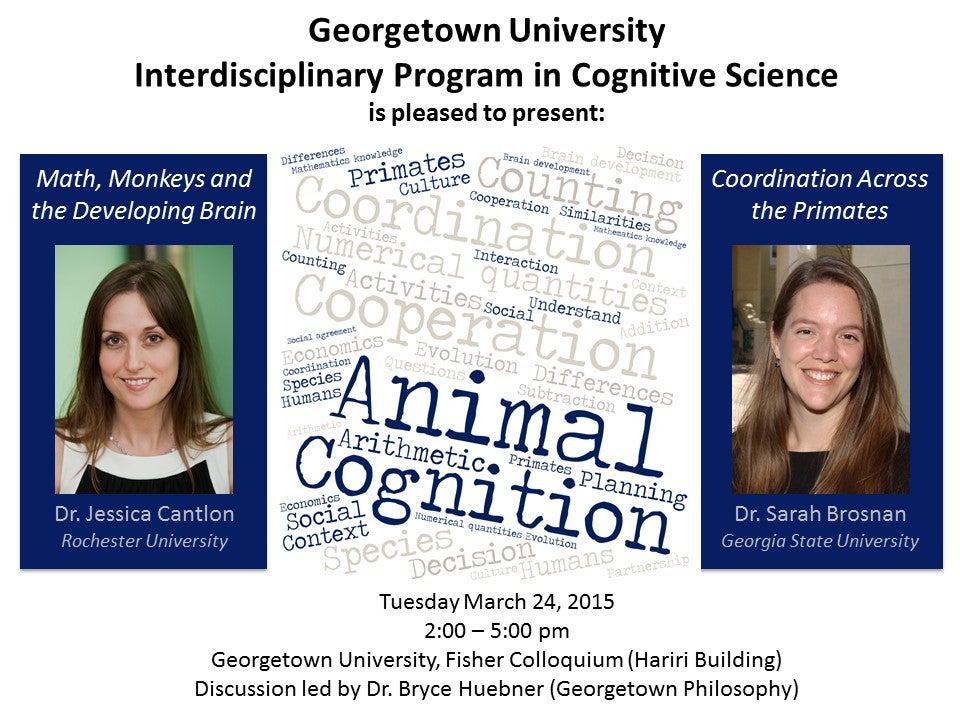Animal Cognition
Tuesday, 24 March 2015 Fisher Colloquium, Hariri Building #490

Description
Do animals think and, if so, how? Do they have an emotional life? Do they communicate? To what extent is animal cognition similar to human cognition and how does it differ?
Our annual Cognitive Science spring event focuses on non-human cognition. The event is built around two lectures by young researchers who have done exciting new work. The lectures will be followed by an open discussion led by Prof. Bryce Huebner of our Philosophy Department.
Light refreshments will be available.
Schedule
2 pm Jessica Cantlon, Rochester: Math, Monkeys, and the Developing Brain
3 pm Sarah Brosnan, Georgia State: Coordination Across the Primates
4 pm Discussion: Bryce Huebner, Georgetown, Philosophy
Abstracts
Math, Monkeys, and the Developing Brain
Jessica Cantlon
Thirty thousand years ago, humans kept track of numerical quantities by carving slashes on fragments of bone. It took approximately 25,000 years for the first iconic written numerals to emerge among human cultures. Now, children acquire the meanings of verbal counting words, Arabic numerals, written number words, and the procedures of basic arithmetic operations, such as addition and subtraction, in just 6 years (between ages 2 and 8). What cognitive abilities enabled our ancestors to record tallies in the first place? Additionally, what foundational abilities allow children to rapidly acquire the formal mathematics knowledge that took our ancestors many millennia to invent? Our research examines the origins and organization of numerical information in humans using evidence from child development, the organization of the human brain, and non-human primate cognition.
Coordination Across the Primates
Sarah Brosnan
Humans routinely confront situations that require coordination between individuals, from mundane activities such as planning where to go for dinner to incredibly complicated activities, such as international agreements. How did this ability arise, and what prevents success in those situations in which it breaks down? To understand how this capability has evolved, my lab has used the methodology of experimental economics in order to address these questions in a cross-species fashion. Experimental economics is an ideal mechanism for this approach, as it is a well-developed methodology for distilling complex decision-making into a series of simple decision choices, allowing these decisions to be compared across species and contexts. We have used this approach to investigate coordination in New World monkeys, Old World monkeys, and great apes, including humans, using identical methodologies. We find that there are remarkable continuities of outcome across the primates, including humans, however, there are also important differences in how each species reaches these outcomes. Moreover, species differ in their sensitivity to the context surrounding a cooperative interaction, with, for instance, some species being more sensitive to their social partners’ outcomes. I consider both the similarities and differences across species and what these can tell us about the evolution of coordination.
